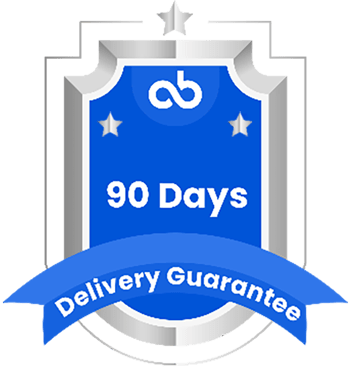Public Relations Tips for SMB’s
Introduction:
A Parade of happy customers spreading the word about your business is the most effective public relations strategy any company could ever have. Your message is only as good as your products.
There are ways for you to build this relationship. You get a story in the newspaper, you get your story on television—wonderful. Don’t think that everyone who you want to see it, is going to see it. That’s what merchandising is. What you need to do is to blast it out to your appropriate network. You can do it.
One of the best ways is email marketing, send out and proposal or a detailed drafted mail about your services and products to the targeted audience.
Again, here’s another little secret; at the end of the e-mail say, “I have a lot more to say about this topic. If you’re interested, we could set up a time for us to speak, and we can go more into detail about it.”
PR is much less expensive than advertising but can be just as effective, adding third-party credibility to products and services. Given the power and cost-effectiveness of PR, it’s often the wiser choice, especially if you lack the budget for big ad buys.
Whether you choose to engage a firm, or go about various forms of PR yourself, there are a number of things you can do to maximize the impact the media can have on your organization.
Here are few basic and important things small businesses should do when starting up their PR strategy:
Gather all of your social properties
One major function of PR is online reputation management.
As a small business owner, you need to make a list of all of the online profiles, platforms and social media sites your business is on.
That way, you can quickly crosscheck your online reputation with each of them, formulating a PR plan to potentially amplify great reviews or rectify any negative reviews.
Publish a media kit
Once you’ve gathered all your social properties into a simple list, you can publish them on a page.
I recommend developing a “Press” page that can be easily found from the front page of your site. Include the list of social properties from above, as well as a company introduction with important facts, links to mentions in the press, past press releases and company contact information.
Gather local media contacts
No matter where your business is located, it’s important to aggregate a list of relevant contacts at print, broadcast and online outlets in your given geographic region. If something exciting happens with your business, you want to be able to quickly reach out to try to gain media coverage, and more importantly, build a lasting, mutually beneficial relationship.
Know your industry-specific media contacts
Most vertical industries also have specific websites, blogs, magazines, podcasts and stations (e.g. YouTube playlists).
Put a list of those together as well, and look for a specific contact who you might be able to reach out to should you encounter anything that might be of interest to them
Have a strong writer on your team
Statements, columns, blog posts of your own and press releases are powerful ways to get noticed. Although you can hire professional writers, it’s valuable to have someone within your organization
Once you have identified the PR plays a vital role, its time to chalk out the strategies. Here are seven reasons a PR strategy is smart business for small companies.
Credibility
Getting a favorable mention of your business in the media holds far more value than a paid advertisement because it has more credibility with the public. Advertising polls shows that earned sources – including word of mouth, customer testimonials or editorial content such as newspaper editorials and articles – are more trusted than branded/owned vehicles such as ads. Press releases, press tours and other publicity-generating PR events help fuel editorial coverage and shape public opinion.
Of course, not every company story lends itself to a media pitch. A seasoned PR team will help shift through ideas to filter out the duds and focus on the most compelling stories, those that will grab media interest and reach. And if a media pitch isn’t the way to go for a certain story or angle, your PR strategy can help you navigate to the right channels and the audience you should target.
Control
Providing the story to the media means more control over the message. Ideally, a media outlet will run your press release verbatim, but even if you can’t control a reporter’s final version of the story, you have more influence if their starting point is your press release. Further, a PR agency has relationships and experience with the local news media and can help you gauge potential risks, should any exist, and can help you target the right media outlets.
Crisis management
A good PR plan isn’t just about generating positive news coverage involving your company. It’s also about avoiding and being prepared to handle bad publicity. Being ready with a plan before disaster strikes can save valuable time and face in the event of a crisis. Whether it’s a credit card breach leaking customers’ sensitive information, an environmental or employment-related scandal, a food-borne illness outbreak, a lawsuit filed against your small business – your public relations strategy can help position a small business for the best possible outcome in a bad situation.
Exposure
People have a lot competing for their attention these days. Public relations offer another way to reach them, another channel to build awareness and create a positive image. It can be leveraged and supplement your other marketing efforts.
Staying power
In the digital age, news stories no longer have a shelf life. Their visibility on search engines doesn’t decline as time passes; instead, articles continue to gain exposure over time as they’re linked by other sources, whether in a newer article, a blog post, a Yelp review or elsewhere.
SEO benefits
Making sure positive stories are told (both in earned and owned media, and across social media networks), that your messaging is consistent and that your content is timely and relevant will keep your organization higher up in search engine rankings, bringing more customers and driving more business growth.
Value
Because small businesses might not have access to the financial resources and large advertising budgets that big companies do, PR offers more bang for your buck. Establishing the right public image and communicating it via the news media is a cost-effective route to raising awareness and improving the perception of your business. Editorial coverage in particular can come at no cost to you, and it can greatly enhance and supplement marketing you’re doing elsewhere.
The foundation of any public relations strategy is first the development of your brand voice and a deep understanding of the various “public’s,” including media, that you want to reach.
Public relations is all about telling the story of your company, but what is that story? You need to figure that out before you reach out to media outlets or chat with fans on social media. Think carefully about your company’s mission statement and how that relates to your company’s unique “voice.” This voice should be consistent throughout all your marketing channels, including your PR efforts.
Social Media Management
In many ways, social media has revolutionized public relations by skipping over the role of journalists altogether and allowing you to directly speak to your audience for free (mostly). Once you have cultivated a strong social media audience, you now own the megaphone. If you use that megaphone wisely, your entertaining, witty, emotionally stirring posts can garner exponential visibility through sharing.
Choose a Few Channels and Be Great at Them
The sheer number of social media channels can feel overwhelming. As a small business, you can’t keep them all covered and run your business at the same time. Choose two or three channels that relate best to your primary public or that you feel comfortable with. For example, your children’s toothpaste company might do well on Facebook, but doesn’t need to be on LinkedIn.
Assign a Social Media Specialist
If you would rather be doing anything other than trying to come up with a new tweet, assign someone in your company to be your social media manager. This should be someone who is already familiar with and passionate about social media and who understands the local “rules” of each different social media channel. In the early days of your business, bringing someone in-house may not be possible, but you can hire an agency to provide the social media support you need.
Develop a Social Media Calendar
Is there such thing as social media “poster’s block?” Don’t find out. Rather than waiting for inspiration to strike, create a social media calendar and plan social media campaigns in advance. Look at upcoming big events, cultural holidays, and company news to create compelling, interesting posts around those topics. With enough lead time, you can create cool, shareable, branded graphics and videos.
Engage
Social media is a conversation. Make sure your social media manager encourages participation and checks all of your active social media channels regularly for responses. He also needs to respond to comments and questions, share cool content from followers, and spark interesting conversations.
Final Thought:
Start by creating your branding document and the profiles of each of your major public. Then dedicate an hour each day to building up your media list, brainstorming story angels, and pitching journalists. If you can, assign your social media to the most socially savvy person in your company. Finally, set up your Google Alerts so you can monitor the conversation the public is having about your company.
Developing and executing a PR plan is one of the best things you can do for your small business. Take advantage of the power of PR!
“Assess the requirements, Explore the opportunities and Implement the changes and Succeed – Sky is the limit”.






